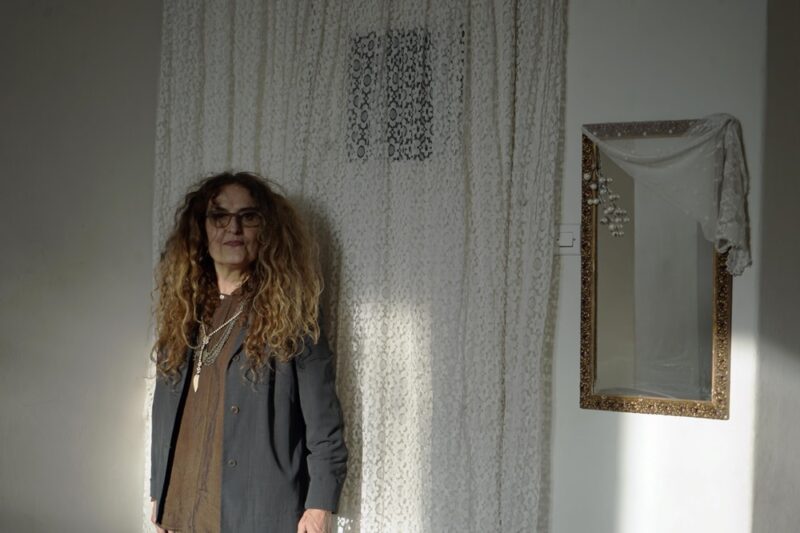
Sofia Filippidou is a personality that needs no special introduction. She is one of the people of art that everyone singles out and honours for her contribution to the theatre, her endless talent in comedy and her equally essential depth when approaching characters in the works of Shakespeare, Beckett, Faulkner and Melville.
In recent years, through her seminars in her own cultural space, “To magazaki tis technis”, she directs students and professional actors, amateurs and people who seek redemption through theatre, and by the general admission of the audience, the performances at the end of the seminars are each one better than the last. Among her other talents, the actress with the distinctive voice that combines in her art the gifts of both Apollo and Dionysus, also engages in writing.
After the success of her books of short form writings, “Me mia skala sto feggari” (Kastaniotis Publications) and “To tragudi tis mavris tripas” (Sokolis Publications), she returns with her first poetry collection, “Forty Poems“, published by Odos Panos.
However, anyone who knows Mrs.Filippidou a little more personally will be able to confirm that her attitude to life and her way of thinking in her everyday life are characterised by a poetic mood of fine quality. Sofia Filippidou generously shared this mood with Days of Art in Greece during the following interview. -Sofia Filippidou
“Forty Poems” is your first collection of poetry. However, one could say that as an artist you are a “natural” poet, since you “generate” and share images through many different art forms (theatre, cinema, prose).
I seem to be a poetic nature and I’m glad you recognize that in your question. Poetry is expression, a riffy play with words and meanings, it is currents of emotions…alchemy of feelings…Everything that permeates our lives and demands to be expressed and communicated. But most of all I am fascinated by images and their power and I seek to create images with my imagination … I am overwhelmed by images. When I make an image that reveals itself to me or as I retrieve an image from my memory, even when I make it for the sake of poetry, I feel as if I am discovering a primordial symbolic language, as if I am extracting precious fragments of words, phonemes and nerves from the earth that I am putting together to edit a short film that I am simultaneously projecting.
The poetry collection does indeed start with a poem you inspired, “On the way to Thessaloniki”. You talk about the blue of the sky that “is not obvious” and observe the enigma of nature. For you, is it the mission of poetry to highlight these elements?
I don’t think poetry is on a mission unless it is guided. We know what happened to poets when they wrote under direction. I think good poetry is free and independent. It begins with the poet walking, thinking, observing and reflecting, always in touch with reality and nature the dream and consciousness, while “urgently” wanting to communicate. When I say it is not “obvious that the sky is blue” I wish to look again at those things that we demand from life as if they were self-evident: love, let us say, appreciation, respect, trust… acceptance, etc. The blue of the sky is for me the blue, black, red, grey of the soul of things and as such we cannot look at it as if it were a sample of colours. There are infinite layers behind “blue sky” and so many more “hows and whys” within this natural phenomenon and all connected to incredibly complex yet fascinatingly simple and infinite natural processes. So I suggest another look that is deeper and more meaningful, that is not touristic.
Your poetry pulsates at times with a mocking attitude towards Greece of subsidies and the society of the spectacle: “Greece in the province shovels the mud / In the capital it is the protagonist / Of a fiction”. What processes take place within the lyrical subject when such a “poem arrives”?
My poetic ego is in great turmoil when something sad happens in the world, but at the same time it is also perplexed, still, and inert physically while it pulsates spiritually. So one version is to take a shovel and go to the countryside to shovel the mud like I clean the dog poop off my sidewalk every day (because their masters are unconscious. )Poetry enabled me to create an allegory with two images that paradoxically “shook” the television landscape with equal momentum.
In your poems you talk about the green gardens of personal life and the final crash that everything in this world experiences. How does poetry proceed with these two ambivalent feelings at stake?
Life inevitably progresses towards death. What changes in every man is which way he will go. The gate of Hades is one, the roads and paths to the gate are thousands. So I think that whether crawling or flying, walking or running on high-speed highways or walking paths, the goal is to see and suffer much so that we arrive full of experiences at the finale. As for my poetry, it proceeds brokenly through lush gardens and through dark burrows, with joy and with fear, with strength and momentum, with faith and passion, having as its destination not only the journey but above all the arrival. (Eleusis).
As in life, so in your work one finds a coupling of Dionysian and Apollonian elements. How is the balance of these two deities achieved in our lives?
These two elements, the ancient deities of myth, sum up human history, its course and passions. The instinct on the one hand, the spirit on the other, in crude terms. Along the way and over the years when we become aware of these two life-giving impulses we make conscious efforts to “marry” them so that they balance within us in a way that is just, beautiful and true. This balance is, I think, what is called happiness or the joy of life.
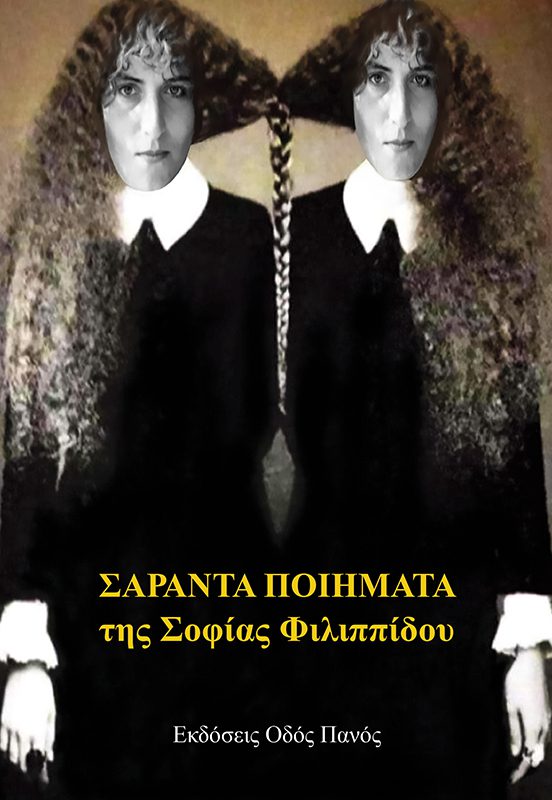
Forty Poems, by Sofia Filippidou. Odos Panos Publications
You belong to that chorus of poets who praise cats (Eliot, Burroughs, Bukowski). What dimensions does our life and our artistic creation take on when we live in symbiosis with these brilliant felines?
Watching the cats taught me many things useful for my personal life. The way they claim space, how they fight for any new space, (even if it is a nylon bag) how they will conquer it by entering it, fascinates me. Then I am surprised by their contact with time. Havimg no clocks or alarm clocks they know exactly what time it is, to ask for the one they want, that they never forget! They sniff at high frequencies and even grow claws ! It’s fascinating. It’s good that we actors and those of us in the arts in general should know these things. Also, they don’t get bored doing the same thing every day: a ritual of life… with me not knowing if it is also a ritual of death too !
The figure of the parents on the margins of memory and the idea of “mistakes waiting for us in the dunes” reminds one of Samuel Beckett’s work. Is it, after all, worth writing even when one has “nothing to say”, as the great writer noted?
The great Nobel Prize-winning author, wanting to tell us that he has nothing to say, wrote masterpieces and the lesson is that everything has been said, but there is always another way to say the same thing and a thousand ways to weave your own knitting with words… Our parents, our mother especially, our origins and our mistakes, are our identity and in this sense there is a connection with the existentialism movement and the movement of the Absurd that Beckett discussed . The point is that there is a great sense of all this being done in a beautiful and authentic way… that is to be real, contemporary and subversive. Personally, I think at the time I was writing I was untying some knots from my shackles and partly escaping my social conventions and prisons to run almost jumping … to mentally roll free in the “cool meadows” … The other version is to be young and brilliant and have the courage to sink into the mud … surrendered to the horrible laughter of the idiot, like the brilliantly desperate Arthur Rimbaud.
*The first poetry collection of Sofia Filippidou is published by Odos Panos Publications. The book is already in its second edition.

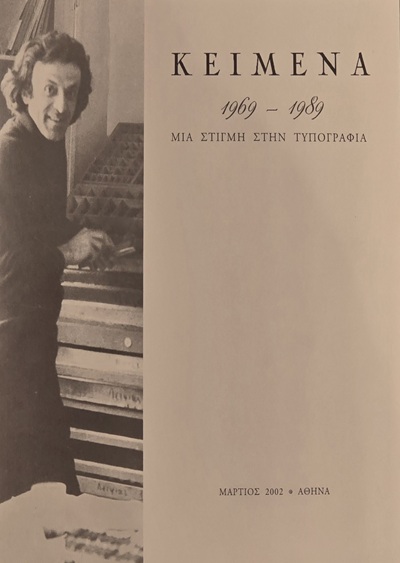
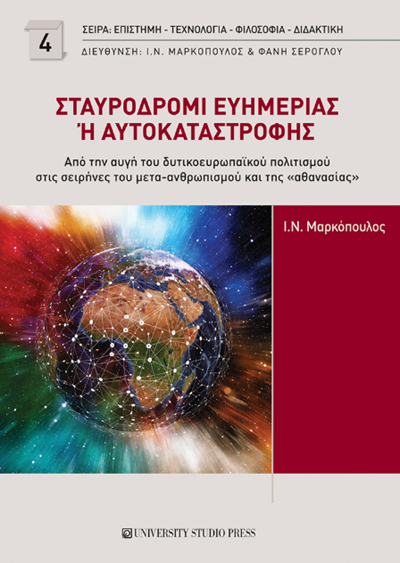
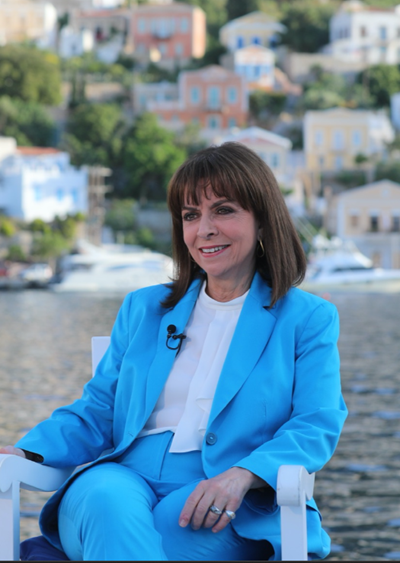
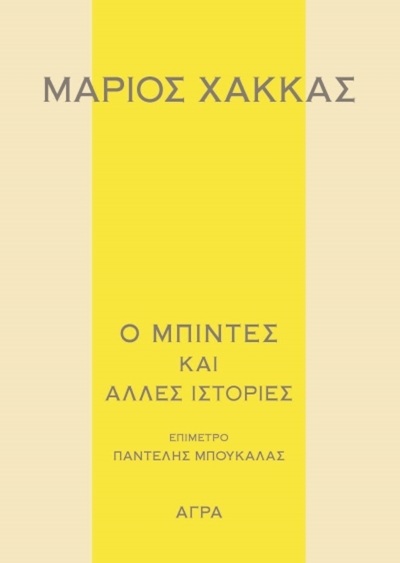


Leave A Comment